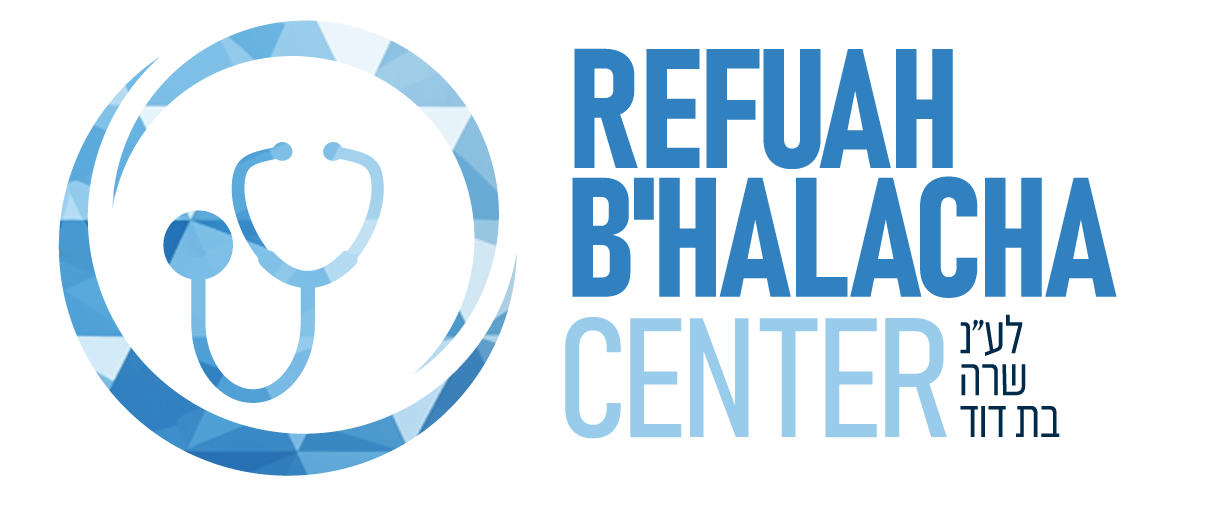Question: When treating a life-threatening situation on Shabbos, should the doctor or health care provider do so while using the standard medical protocol or should he employ a shinui whenever he can?
Discussion: The general rule is that when dealing with a dangerously-ill patient (choleh sheyeish bo sakanah), we do everything we can in the fastest, most direct manner possible. Thus, we do not delegate the treatment of a dangerously-ill patient to a non-Jew or a child, nor do we sidestep the treatment with methods that may seem less severe – less of a prohibition – from a halachic standpoint. But this holds true only if the dangerously-ill patient is classified as needing urgent care, which means that any slight delay may be of consequence to the patient. In such a case we do what must be done, quickly and directly, without looking for alternatives. But in some situations the care for a choleh sheyeish bo sakanah, although critically important, is not time-sensitive. In such a case, melachah on his behalf should be done with a shinui, which lessens the prohibition from a Torah level to a derabanan level.[1]
For example: consider a choleh sheyeish bo sakanah who needs the light to be turned off, or the air conditioner turned on, so that he could go to sleep and regain his strength. While this is permitted, it is by no means an urgent matter. Turning off the light or turning on the air conditioner with a shinui, as opposed to doing so directly, will not cause any harm to the patient, nor will it delay his sleep or comfort. In such a case, a shinui should be used.[2]
Question: Is a Jewish doctor [or emergency responder] permitted to desecrate Shabbos for a life-saving emergency involving a non-Jew?
Discussion: In contemporary times, the poskim unanimously say that during an emergency it is permitted for a Jewish doctor or health care provider to treat all patients, regardless of their religion, race, or level of religious observance. This includes dispensing medication, bandaging a wound, or doing anything that is required to save a patient’s life, including performing melachos which are forbidden from the Torah.[3]
It should go without saying, however, that this is not a blanket leniency for doctors to practice medicine on Shabbos as they do on weekdays. Rav M. Feinstein rules that a doctor is required to set up his practice, from the very beginning, in such a way that he does not have to work on Shabbos at all. He must do whatever he can to arrange that Shabbos be his off day and that another non-Jewish doctor should cover his rounds and patients for him.[4] But if, after arranging everything to the best of his ability, a doctor finds himself in a hospital on Shabbos and is being asked to treat a non-Jewish patient,[5] he absolutely must heed the request. Likewise, if a Jewish emergency responder is called to assist a non-Jew in a medical emergency, he absolutely must accept the call. And they must employ the standard medical protocol that they would follow on weekdays – even if it will mean desecrating Shabbos by doing full-fledged Torah prohibitions. Obviously, one should do anything possible to avoid Shabbos desecration, whenever it will not compromise patient care. Regarding payment, the doctor may not charge the patient exclusively for his Shabbos work, since one may not profit from chilul Shabbos,[6] but he may charge him for Shabbos work if it is being charged as part of his overall treatment (using the concept of havla’ah).
[1] Mishnah Berurah 328:35.
[2] Shemiras Shabbos Kehilchasah 32:86. See also Shulchan Shelomo 328:15-4.
[3] Although Mishnah Berurah 330:8, following the opinion of Magen Avraham, criticizes some doctors in Russia who performed forbidden melachos from the Torah, all of the poskim – both before and after the Mishnah Berurah – agreed that nowadays we do not discriminate between people and we treat all life-threatening situations on Shabbos, regardless of who the patient may be; see Chasam Sofer, O.C. 131; C.M. 194; Divrei Chayim 2:25; Tiferes Yisrael (Avodah Zarah 2:6); Igros Moshe 4:79; Minchas Yitzchak 1:53; 3:20; Shulchan Shelomo 330:7; Tzitz Eliezer 8:15-6.
[4] Igros Moshe 1:131; 4:79. Rav M. Feinstein adds that if an observant Jewish doctor cannot find a non-Jewish doctor to cover for him, he may arrange for a non-observant Jewish doctor to take his place on Shabbos. Lifnei eiver does not apply here, since the non-observant doctor is not keeping Shabbos anyway while at home. Moreover, he will probably do less forbidden melachos in the hospital than at home, which means that we are actually minimizing chilul Shabbos, not causing more of it.
[5] An additional factor worth mentioning is that due to the tremendous intermarriage and assimilation rate, there are many “non-Jews” who could, in fact, be Jewish.
[6] Igros Moshe 4:79; Shemiras Shabbos Kehilchasah 28, footnote 155. See Teshuvos Chasam Sofer, C.M. 194, who rules that money earned from healing a non-Jew on Shabbos must be donated to charity.
